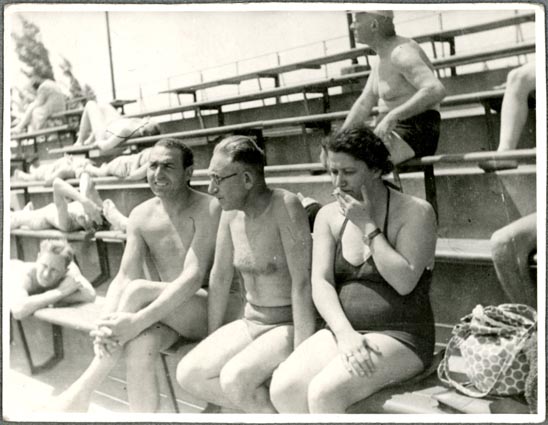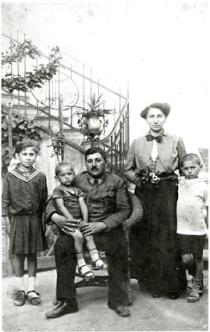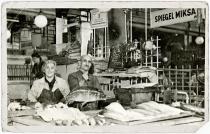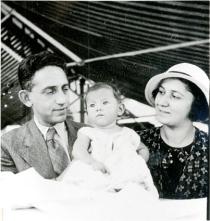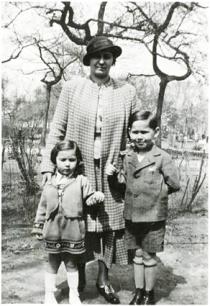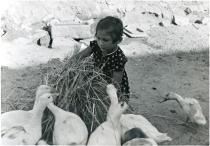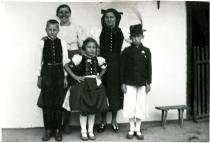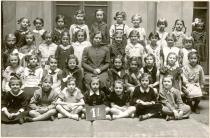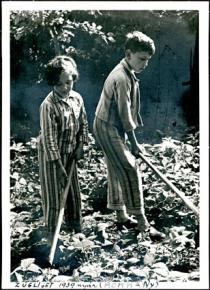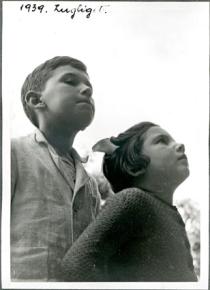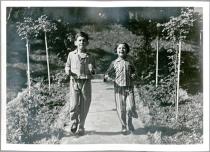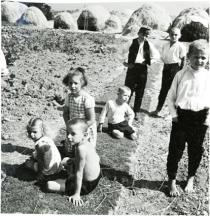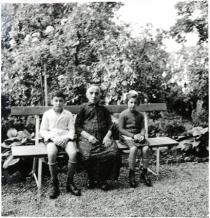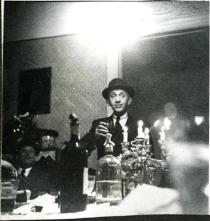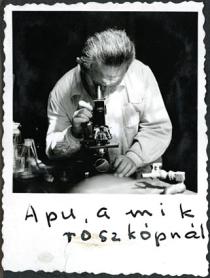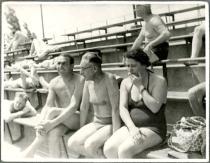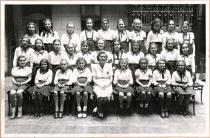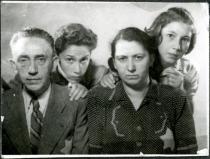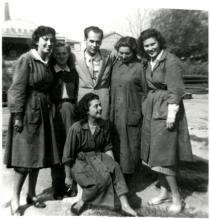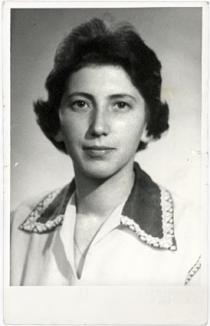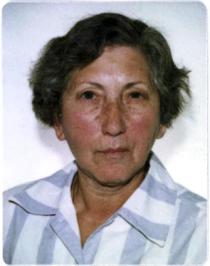You can see in the picture my mother, my father, and my mother's younger brother who survived the Holocaust and lived in Budapest. This picture was taken already after the war.
My mother's younger brother was born in 1908. He died in Buchenwald [today Germany]. Her other brother was seven years younger than my mother. Her older brother, when grandfather died in 1933, took over my grandfather's trade, and so that they wouldn't compete with each other, my other uncle moved to Nyiregyhaza and became a handicraftsman there, and he lived there with his wife. Their child was 10 months old when the Germans deported them to Auschwitz [today Poland] and burned them. My uncle had been a forced laborer for a long time then, and a prisoner of war. He had been at a prisoner of war camp, had petechial typhus and other diseases, and came home from the Russian captivity in 1947. He remarried and had three children, but after this he lived in Budapest until his death.
My father used to go to hike in the Tatras, he also skied, and he taught us to ski when we were still very small. We skated and skied. There was a rink at Sziget Street, where there was a tennis court in the summer, and in the winter we skated there.
Besides that we went to hike to the Buda Mountains, to Pilis or to Borzsony every Sunday. We didn't care if it rained or if it was windy, we went to hike in boots and warm stockings. We went with the family, and we went in groups, too. At that time there was an active tourist life, the goldsmiths also had a sports club, and we went every Sunday, 50-60 of us, or even more. I think everyone was Jewish, and I'm sure there were others, too, I don't know, but there were many of us. There were many children, too, and we played very well. The restaurant in Budakeszi, where we ate bean soup or stock many times, and which was called Mocsnek at that time, I don't know what it is called today, still exists. There were hostels, the Kevelynyereg hostel, for example, which I liked very much, unfortunately that doesn't exist anymore. The hostels were made so that the tourists carried the bricks up with their own hands and built them. The administrator of the Nagykevely lived there, so when Northern Hungary was reannexed, my mom went with that group, the administrator was the guide, and they toured the part of the Carpathian Mountain, which is Subcarpathia now. It is difficult to imagine that generation, the many things they had the time for and the many things they did.
